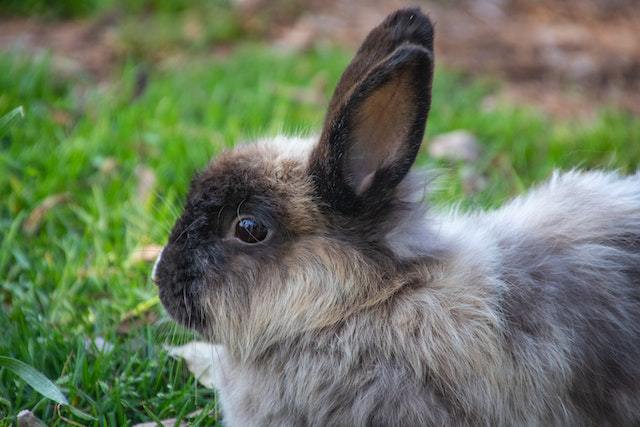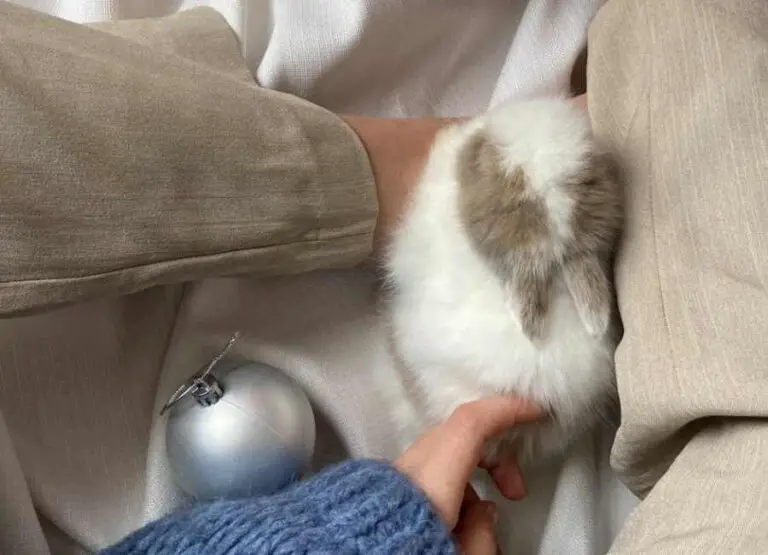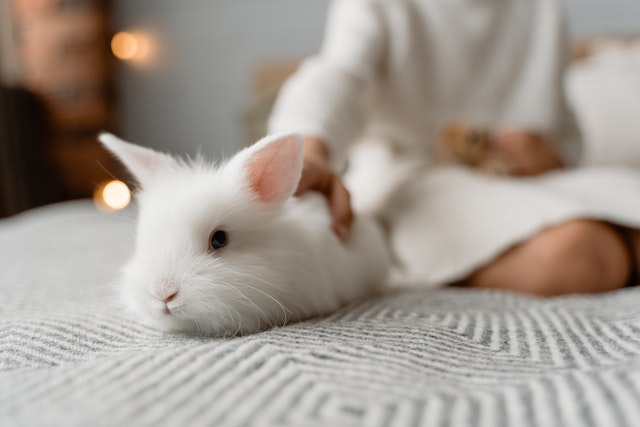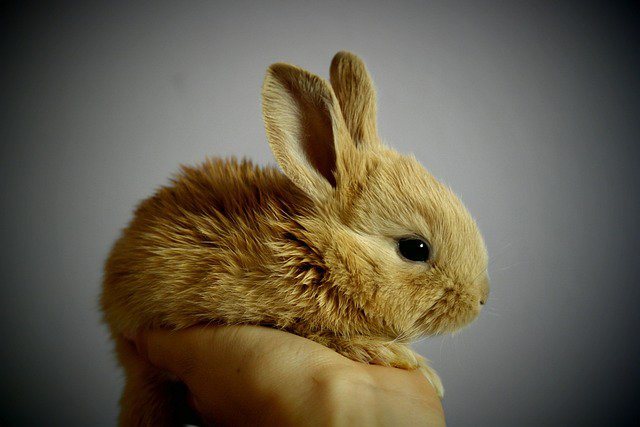12 Abnormal Rabbit Behaviour [Meaning & Tips]
![12 Abnormal Rabbit Behaviour [Meaning & Tips] Abnormal Rabbit Behaviour](https://petcreeks.com/wp-content/uploads/2023/10/pexels-magda-ehlers-9348913.jpg)
Let’s discuss some abnormal rabbit behavior!
Have you ever noticed your furry little friend acting a bit, well, peculiar? We’ve all been there!
In this blog post, we’ll dive into the fascinating world of abnormal rabbit behavior, unraveling the mysteries behind those quirky hops and twitches.
So, let’s hop right in!
Abnormal Rabbit Behaviour
Abnormal rabbit behavior can include excessive chewing or digging, aggression towards humans or other animals, and refusal to eat or drink.
These behaviors may indicate stress, illness, or a lack of environmental enrichment.
It is important to address abnormal behaviors promptly and consult with a veterinarian for proper diagnosis and treatment.
Let’s break it down further…
The following are some of the most common abnormal rabbit behaviour you should know:
1. Aggressively Chewing on Things Like Cage Bars or Furniture
Rabbits may engage in aggressive chewing behavior for several reasons. It could be due to boredom, frustration, or a need to wear down their continuously growing teeth.
Here are some possible meanings and practical ways to address this behavior:
Possible Meaning:
- Boredom: Rabbits are intelligent animals that require mental stimulation. If they don’t have enough toys or activities to keep them occupied, they may resort to chewing on cage bars or furniture out of boredom.
- Lack of appropriate chewing options: Rabbits have a natural need to chew to wear down their teeth. If they don’t have access to appropriate chew toys or hay, they may chew on inappropriate objects.
Potential Solutions:
- Provide appropriate chew toys: Offer a variety of safe chew toys made specifically for rabbits, such as untreated wooden blocks or cardboard tubes. These toys can help satisfy their chewing needs and keep them entertained.
- Increase mental stimulation: Provide your rabbit with interactive toys, puzzle feeders, or hiding spots to keep them mentally engaged. Rotate toys regularly to prevent boredom.
- Ensure a healthy diet: A diet rich in hay and fresh vegetables can help wear down a rabbit’s teeth naturally. Make sure your rabbit has access to unlimited hay and a balanced diet to prevent dental issues.
- Bunny-proof the environment: Remove or secure any objects that your rabbit may be tempted to chew on. Cover furniture legs with protective coverings or use bitter-tasting sprays to deter chewing.
2. Being Excessively Jumpy and Watchful (Bulging Eyes)
If your rabbit appears excessively jumpy and watchful, with bulging eyes, it may indicate depression, fear, stress, or a perceived threat.
Here are some possible meanings and practical ways to address this behavior:
Possible Meaning:
- Fear or anxiety: Rabbits are prey animals and can easily become frightened or stressed. They may exhibit jumpy behavior and have bulging eyes when they feel threatened or unsafe in their environment.
- Lack of socialization: If a rabbit hasn’t been properly socialized or has had negative experiences, they may be more prone to fear and anxiety.
Potential Solutions:
- Provide a safe and secure environment: Ensure that your rabbit’s living space is quiet, calm, and free from potential threats. Create hiding spots or safe zones where your rabbit can retreat to when they feel scared.
- Gradual socialization: If your rabbit is fearful, work on gradually socializing them by introducing positive experiences and interactions with trusted individuals. Avoid forcing interactions and allow your rabbit to approach at their own pace.
- Minimize sudden loud noises: Loud noises can startle rabbits and contribute to their jumpy behavior. Try to minimize sudden loud noises in their environment or provide white noise to help mask sounds that may cause stress.
- Consult with a veterinarian or animal behaviorist: If your rabbit’s jumpy behavior persists or worsens, it may be beneficial to seek professional advice to address any underlying issues causing fear or anxiety.
3. Pulling Out Fur
Rabbits may pull out their fur for various reasons, including grooming, nesting behavior, or underlying health issues.
Here are some possible meanings and practical ways to address this behavior:
Possible Meaning:
- Normal grooming behavior: Rabbits groom themselves regularly and may pull out fur as part of their grooming routine. This behavior is usually not a cause for concern unless it becomes excessive.
- Nesting behavior: Female rabbits may pull out fur to create a nest when they are pregnant or preparing to give birth. This behavior is natural and should be allowed to continue.
- Stress or health issues: Excessive fur pulling can be a sign of illness, stress, boredom, or underlying health issues such as skin irritation, parasites, or hormonal imbalances.
Potential Solutions:
- Monitor for underlying health issues: If you notice excessive fur pulling or bald patches, consult with a veterinarian to rule out any underlying health problems.
- Provide mental stimulation: Ensure your rabbit has plenty of toys, tunnels, and hiding spots to keep them mentally stimulated and prevent boredom.
- Address stress factors: Identify and address any potential stressors in your rabbit’s environment. Provide a calm and secure living space and minimize changes or disruptions that may cause stress.
- Offer appropriate nesting materials: If your female rabbit is exhibiting nesting behavior, provide her with appropriate nesting materials such as hay or soft bedding to support her natural instincts.
4. Circling or Head Tilt
If your rabbit is circling or tilting its head to one side, it may indicate a medical condition known as head tilt or vestibular disease.
This condition can be caused by an infection, injury, or an underlying health issue affecting the rabbit’s balance and coordination. It is essential to seek veterinary attention promptly if you observe these behaviors.
Possible Meaning:
- Vestibular disease: Head tilt or circling behavior is often a symptom of vestibular disease, which affects the rabbit’s inner ear and balance.
- Infection or injury: Infections or injuries to the ear or head can lead to head tilt and circling behavior in rabbits.
Potential Solutions:
- Consult with a veterinarian: If your rabbit is exhibiting head tilt or circling behavior, it is crucial to seek veterinary attention immediately. The underlying cause needs to be diagnosed and treated by a professional.
- Follow veterinary advice: Your veterinarian may prescribe medication or recommend specific treatments based on the underlying cause of the head tilt. Follow their instructions carefully to ensure the best possible outcome for your rabbit’s health.
5. Aggressive Digging and Burrowing
Aggressive digging and burrowing behavior in rabbits can have various meanings and causes.
It is important to understand the underlying reasons for this behavior in order to address it effectively.
Here are some possible meanings and practical ways to address aggressive digging and burrowing:
Possible Meanings:
- Territorial behavior: Rabbits may dig aggressively to mark their territory and establish dominance.
- Boredom or lack of stimulation: If a rabbit is not provided with enough mental and physical stimulation, it may resort to digging as a way to alleviate boredom.
- Nesting instinct: Female rabbits may dig aggressively when they are pregnant or preparing to give birth, as they have a natural instinct to create a burrow-like nest.
Potential Solutions:
- Provide appropriate outlets for digging: Set up a designated digging area for your rabbit, such as a large box filled with soil or sand. Encourage your rabbit to dig in this area by hiding treats or toys.
- Increase mental and physical stimulation: Ensure that your rabbit has plenty of toys, tunnels, and other enrichment items to keep them mentally and physically engaged. Rotate the toys regularly to prevent boredom.
- Spay or neuter your rabbit: If the digging behavior is related to territorial or nesting instincts, spaying or neutering your rabbit can help reduce these behaviors.
- Supervise and redirect: If your rabbit starts digging inappropriately, gently redirect their attention to a more appropriate activity, such as playing with a toy or exploring a different area.
6. Thumping the Ground With Its Feet
Thumping the ground with its feet is a common behavior in rabbits and can have different meanings depending on the context.
Understanding the reasons behind this behavior is crucial for addressing it effectively.
Here are some possible meanings and practical ways to address thumping:
Possible Meanings:
- Warning signal: Rabbits may thump their feet as a way to communicate danger or alert other rabbits in the vicinity of a potential threat.
- Expression of frustration or annoyance: Thumping can also be a sign of frustration or annoyance, especially if the rabbit is unable to access something it wants or is being handled in a way it dislikes.
Potential Solutions:
- Identify the trigger: Pay attention to the context in which your rabbit is thumping. Try to identify any potential triggers or sources of stress that may be causing the behavior.
- Provide a safe environment: Ensure that your rabbit’s living environment is secure and free from potential threats or disturbances that may be causing them to feel unsafe or anxious.
- Minimize stressors: If you notice that certain situations or interactions consistently lead to thumping, try to minimize or avoid those triggers as much as possible.
- Positive reinforcement: Reward your rabbit with treats or praise when they remain calm and do not engage in thumping behavior in potentially stressful situations. This can help reinforce positive behavior and reduce the frequency of thumping.
7. Suddenly Refusing Food or Water
If a rabbit suddenly refuses food or water, it can be a cause for concern as it may indicate an underlying health issue.
It is important to address this behavior promptly to ensure the well-being of your rabbit.
Here are some possible causes and practical ways to address sudden refusal of food or water:
Possible Causes:
- Dental problems: Rabbits with dental issues, such as overgrown teeth or tooth spurs, may experience pain or discomfort while eating, leading to a refusal of food.
- Gastrointestinal issues: Digestive problems, such as gastrointestinal stasis or blockages, can cause rabbits to lose their appetite and refuse food.
- Stress or environmental changes: Rabbits are sensitive animals, and sudden changes in their environment or stressful situations can lead to a loss of appetite.
Potential Solutions:
- Consult a veterinarian: If your rabbit refuses food or water, it is important to consult a veterinarian as soon as possible. They can perform a thorough examination and determine the underlying cause of the behavior.
- Ensure dental health: Regularly check your rabbit’s teeth for signs of overgrowth or other dental issues. Provide appropriate chew toys and a balanced diet to promote dental health.
- Maintain a consistent environment: Minimize stressors and sudden changes in your rabbit’s environment. Provide a quiet and comfortable space for them to eat and drink.
- Offer tempting foods: If your rabbit is refusing their regular food, try offering fresh, fragrant herbs or vegetables that they enjoy. This may help stimulate their appetite.
8. Unnecessary Hiding
Unnecessary hiding behavior in rabbits can be a sign of fear, stress, or a need for privacy.
Understanding the underlying reasons for this behavior is important in order to address it effectively.
Here are some possible meanings and practical ways to address unnecessary hiding:
Possible Meanings:
- Fear or anxiety: Rabbits may hide when they feel threatened or scared. This behavior is their way of seeking safety and protection.
- Lack of suitable hiding spots: If a rabbit does not have access to appropriate hiding spots in their environment, they may resort to hiding in unsuitable or inconvenient places.
- Illness or pain: Rabbits may hide when they are feeling unwell or in pain. This behavior can be a sign that they are trying to cope with discomfort or seek solitude.
Potential Solutions::
- Provide hiding spots: Ensure that your rabbit has access to suitable hiding spots in their living environment, such as tunnels, boxes, or covered areas. This will give them a sense of security and a place to retreat to when they feel the need.
- Create a calm environment: Minimize loud noises, sudden movements, and other stressors that may cause your rabbit to feel anxious or fearful. Provide a calm and predictable environment for them.
- Regular health check-ups: Schedule regular check-ups with a veterinarian to ensure that your rabbit is in good health. Address any underlying health issues that may be causing the hiding behavior.
- Patience and gentle interaction: Approach your rabbit calmly and gently, allowing them to come out of hiding on their own terms. Avoid forcing them out or making sudden movements that may startle them.
9. Showing Repeated Movements That Do Not Seem to Have a Purpose
When a rabbit shows repeated movements that do not seem to have a purpose, it may be exhibiting abnormal behavior.
This behavior can be a sign of stress, boredom, or a medical issue. It is important to identify the underlying cause and address it appropriately.
Here are some possible meanings and practical ways to address this behavior:
Possible Meanings:
- Stress or anxiety: Rabbits may engage in repetitive movements when they are stressed or anxious. This can be due to changes in their environment, lack of social interaction, or fear.
- Boredom: If a rabbit is not provided with enough mental and physical stimulation, it may resort to repetitive behaviors as a way to cope with boredom.
- Medical issues: Certain medical conditions, such as dental problems or neurological disorders, can cause rabbits to exhibit repetitive movements.
Potential Solutions:
- Provide a stimulating environment: Ensure that the rabbit’s living space is enriched with toys, tunnels, and hiding spots. This can help keep them mentally engaged and prevent boredom.
- Increase social interaction: Spend quality time with your rabbit, providing them with attention, affection, and gentle play. This can help alleviate stress and anxiety.
- Consult a veterinarian: If the repetitive movements persist or are accompanied by other concerning symptoms, it is important to consult a veterinarian. They can assess the rabbit’s health and provide appropriate treatment if there is an underlying medical issue.
10. Being Unnecessarily Restless
When a rabbit is unnecessarily restless, it may be a sign of discomfort, stress, or a need for more physical activity. Understanding the underlying cause and addressing it can help alleviate this behavior.
Here are some possible meanings and practical ways to address restlessness in rabbits:
Possible Meanings:
- Lack of exercise: Rabbits are naturally active animals and require regular exercise to stay healthy. If a rabbit does not have enough space to move around or opportunities for physical activity, it may become restless.
- Environmental factors: Changes in the rabbit’s environment, such as loud noises, bright lights, or extreme temperatures, can cause restlessness and stress.
- Health issues: Restlessness can be a symptom of pain or discomfort, such as dental problems, gastrointestinal issues, or urinary tract infections.
Potential Solutions:
- Provide ample space for exercise: Ensure that your rabbit has enough space to hop, run, and explore. A large, secure enclosure or a designated play area can help fulfill their need for physical activity.
- Create a calm environment: Minimize loud noises, bright lights, and other environmental stressors that may contribute to restlessness. Provide a quiet and comfortable space for your rabbit to relax.
- Monitor health and seek veterinary care: Regularly monitor your rabbit’s health and behavior. If restlessness persists or is accompanied by other concerning symptoms, consult a veterinarian to rule out any underlying health issues.
11. Excessive Noises
Excessive noise from a rabbit can be disruptive and may indicate distress or discomfort.
Identifying the cause of the excessive noise and addressing it can help create a more peaceful environment for both the rabbit and its caretakers.
Here are some possible meanings and practical ways to address excessive noise in rabbits:
Possible Meanings:
- Fear or anxiety: Rabbits may make excessive noise when they feel threatened or scared. This can include loud thumping of their hind legs or vocalizations.
- Communication: Rabbits may make noise to communicate their needs or express their emotions. This can include grunting, growling, or honking sounds.
- Medical issues: Some medical conditions, such as dental problems or respiratory infections, can cause rabbits to make excessive noise.
Potential Solutions:
- Create a safe and secure environment: Ensure that your rabbit’s living space is secure and free from potential threats. This can help reduce fear and anxiety, leading to less excessive noise.
- Provide more hiding spots: Rabbits feel more secure when they have hiding spots to retreat to. Provide them with boxes, tunnels, or other hiding places where they can feel safe.
- Consult a veterinarian: If the excessive noise persists or is accompanied by other concerning symptoms, it is important to consult a veterinarian. They can assess the rabbit’s health and provide appropriate treatment if there is an underlying medical issue.
12. Unnecessarily Nipping at You
When a rabbit nips at you without provocation, it can be a sign of fear, territorial behavior, or a lack of socialization.
Addressing this behavior is important to prevent injury and improve the rabbit’s relationship with its caretakers.
Here are some possible meanings and practical ways to address unnecessary nipping in rabbits:
Possible Meanings:
- Fear or anxiety: Rabbits may nip when they feel threatened or scared. This can be a defensive behavior to protect themselves from perceived danger.
- Territorial behavior: Rabbits are territorial animals and may nip to establish boundaries or protect their space.
- Lack of socialization: If a rabbit has not been properly socialized or handled, it may nip as a way to assert dominance or communicate discomfort.
Potential Solutions:
- Approach with care and gentleness: When interacting with a rabbit, approach slowly and calmly. Avoid sudden movements or loud noises that may startle the rabbit.
- Socialize and handle the rabbit regularly: Gradually introduce the rabbit to different people and situations to help them become more comfortable and less fearful. Regularly handle the rabbit to build trust and familiarity.
- Provide appropriate outlets for territorial behavior: Ensure that the rabbit has a designated space that they can consider their own. This can help reduce territorial aggression towards humans.
- Seek professional advice: If the nipping behavior persists or escalates, it may be beneficial to seek advice from a professional animal behaviorist or veterinarian who specializes in rabbits. They can provide personalized guidance and strategies to address the behavior.
Frequently Asked Questions
Why is my rabbit suddenly aggressive?
Sudden aggression in rabbits can be caused by various factors, including fear, territorial behavior, hormonal changes, or pain. It’s important to observe your rabbit’s body language and consult a veterinarian if the aggression persists or worsens.
My rabbit is chewing on everything! What should I do?
Rabbits have a natural need to chew to keep their teeth healthy and wear them down. However, excessive chewing can be a sign of boredom or dental issues. Provide your rabbit with plenty of safe chew toys and ensure they have a stimulating environment to reduce destructive chewing.
Why is my rabbit suddenly not using the litter box?
A change in litter box habits can indicate stress, illness, or discomfort. Ensure the litter box is clean and easily accessible, and consider any recent changes in the rabbit’s environment or routine. If the issue persists, consult a veterinarian to rule out any underlying health problems.
Why is my rabbit pulling out its fur?
Fur pulling or over-grooming in rabbits can be a sign of stress, skin irritation, parasites, or hormonal imbalances. Assess your rabbit’s living conditions, diet, and social interactions to identify potential stressors. If the behavior continues, it’s best to seek advice from a veterinarian.
Is it normal for my rabbit to hide all the time?
While rabbits naturally seek hiding spots, excessive hiding may indicate fear, illness, or discomfort. Ensure your rabbit has a safe and secure hiding area but also provide opportunities for social interaction and exploration. If your rabbit’s behavior seems abnormal or they show signs of illness, consult a veterinarian.
Why does my rabbit thump its hind legs?
Rabbits thump their hind legs as a warning signal to other rabbits or potential threats. It’s a natural behavior that indicates they perceive danger or feel stressed. If your rabbit is thumping excessively, try to identify the cause of their distress, such as loud noises or sudden changes in the environment, and address it accordingly.
Conclusion
In conclusion, understanding and addressing abnormal rabbit behavior is crucial for ensuring the well-being of our furry friends.
By observing their body language, providing a stimulating environment, and seeking veterinary advice when needed, we can help rabbits live happy and healthy lives. So let’s hop to it and be proactive in caring for our adorable companions!



![How to Comfort a Dying Rabbit [12 Helpful Strategies] How to Comfort a Dying Rabbit](https://petcreeks.com/wp-content/uploads/2023/10/How-to-Comfort-a-Dying-Rabbit.jpg)


